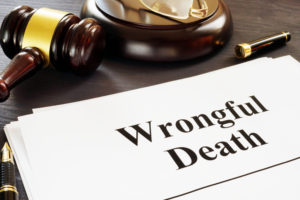
Personal injury and wrongful death cases can sometimes become highly complicated. These cases can require years of litigation to resolve, intensifying the emotional suffering of personal injury victims and surviving family members, and resulting in massive legal bills. Thus, it is often advisable to consider the wide variety of alternative dispute resolution (ADR) strategies currently available. Doing so can significantly accelerate the case-resolution process and help claimants circumvent the hassles, stress, and expense of litigation.
Mediation can be Effective in Settling Personal Injury and Wrongful Death Cases
One type of ADR is mediation, a non-binding process that can be voluntary or court-ordered. The parties involved in a dispute agree to employ a neutral third party, known as the mediator, to assist in resolving their case prior to trial. The mediator is frequently a retired judge or a knowledgeable lawyer who possesses up-to-date training and education on the subject of ADR and dispute resolution in general. The mediator is usually selected through an agreement by the parties involved, not by the judge or the court where the case is awaiting trial. It is of particular importance to the settlement process that the mediator’s experience and judgment be valued and respected by both sides in the case being mediated.
The injured victim or the deceased victims’ representatives attend the session, except in highly unusual situations. Moreover, in some instances, other members of the victim’s family may be present, especially when they need to be consulted about settlement-related topics. The injured party’s attorney or the lawyer of the deceased party’s family is always present throughout the meeting.
In a personal injury or a wrongful death case, a mediation session generally entails the individuals and their lawyers getting together with the mediator for a meeting that can last for half a day, a whole day, or several days. Other than the mediator and the parties involved (or a representative of an insurance company), no one else attends the mediation meeting. Unlike with a trial or a deposition, no court reporter is present, and no transcript is prepared. Thus, in contrast to a court trial, a mediation session is not a form of public hearing or proceeding.
The Nature of the Mediation Process
The session begins with both sides talking with the mediator as a group. During this time, the lawyers for each party sum up that party’s position, and no testimony is involved. The parties are expected to engage in the mediation process in good faith to attempt to settle the case instead of proceeding with litigation. Mediation sessions are confidential, so none of the session’s content can be used in court. Often, mediation can be employed successfully to resolve a personal injury or wrongful death claim.
After the group session, the parties typically go into separate rooms. The mediator moves back and forth amongst the parties, discussing the facts of the case with the claimants and their lawyers and conveying settlement offers from one group to the other. The mediator may also present the strong and weak points of each side’s case and potential outcomes of the case if it goes to trial. However, the mediator lacks the authority to decide the case or any of the relevant issues.
If the mediation process functions as planned, the settlement offers will get increasingly close in amount until the parties agree and the case is finalized. In the meantime, terms besides the settlement monetary amount are discussed and negotiated, including the issue of confidentiality, medical and other types of liens, the likelihood of a settlement featuring periodic payments, and the scheduling of payments. If the mediation is unsuccessful, such as if the parties cannot see eye to eye on the terms and amount of a settlement, the case will progress through the legal system and may ultimately go to trial.
Reasons for Pursuing Mediation in Personal Injury and Wrongful Death Cases
Personal injury and wrongful death cases can be resolved either by an out-of-court settlement or by a court trial. Settlements amongst the parties can sometimes be reached without recourse to mediation; however, it is more likely that a settlement can be worked out by an experienced and well-trained mediator than by the parties if they tried to carry out the process on their own. The alternative to a mediated settlement, namely going to trial, possesses many risk factors and elements of expense that are not present in a mediated settlement. In court, one party wins. The opposing party loses, but settling through mediation eliminates this all-or-nothing gamble and supplants it with the assurance of a mutual and even cordial agreement through a settlement.
Constantly growing court dockets, skyrocketing legal costs, and increasing public discontent with conventional adversarial courtroom procedures have prompted the expanded use of alternative dispute resolution techniques. In recent decades, a wide array of such approaches has evolved, such as arbitration, mediation, summary jury trials, and mini-trials, along with many hybrid dispute resolution formats. In many cases, all of these means of resolving disputes offer clear advantages over traditional legal action. And, among the diverse alternative dispute resolution methods available, the mediation process stands out as being especially beneficial. Mediation has several distinctive characteristics, including its informality, flexibility, and its relatively low cost, all of which often make it preferable both to lawsuits and other alternative dispute resolution strategies.
Mediation is Uniquely Suited to Use in Personal Injury and Wrongful Death Cases
Due to the characteristics mentioned above, mediation offers a unique opportunity for the expression of genuine care and concern to those who have suffered serious injuries or the tragic loss of a loved one, thus making the process well suited to the resolution of personal injury and wrongful death cases.